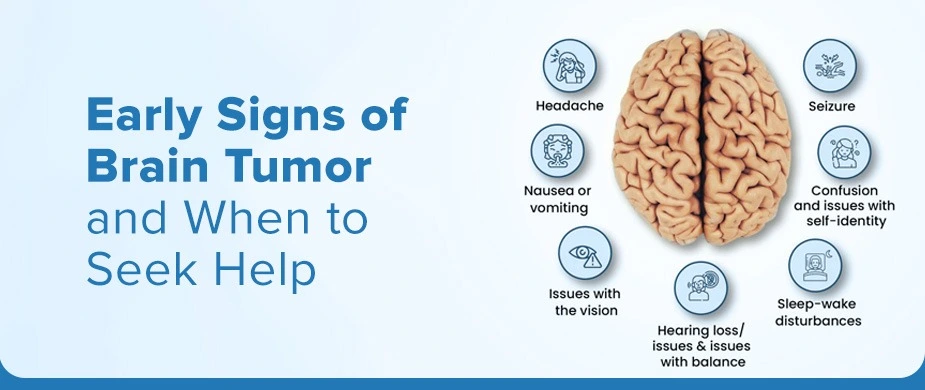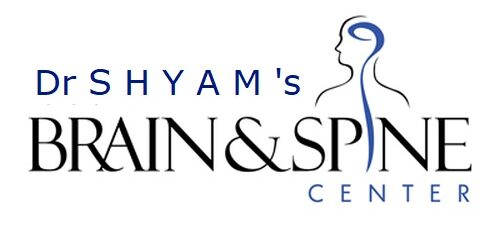Published: May 9, 2025
A brain tumor diagnosis can be overwhelming, but recognizing the symptoms of brain tumor early can lead to timely treatment and better outcomes. In India, where thousands are diagnosed annually, understanding these signs is crucial for residents of cities like Madurai, where advanced neurosurgical care is increasingly accessible. This blog provides a comprehensive guide to brain tumor symptoms, their causes, diagnostic processes, treatment options, and practical steps for patients and families, empowering you to act swiftly and confidently.
In 2025, India’s healthcare system offers world-class neurosurgery, supported by cutting-edge technology and multidisciplinary teams. Drawing on the latest medical insights, this guide explores brain tumor symptoms in detail, shares a patient story, and offers actionable advice tailored for Indian families, with a focus on Madurai’s growing medical infrastructure. Whether you’re concerned about persistent headaches or seeking clarity for a loved one, this blog aims to inform and support.

What Is a Brain Tumor?
A brain tumor is an abnormal growth of cells in the brain or its surrounding tissues, such as the meninges, pituitary gland, or cranial nerves. Tumors can be benign (non-cancerous, slow-growing) or malignant (cancerous, aggressive), and they may originate in the brain (primary) or spread from other cancers (secondary).
Types of Brain Tumors
- Meningiomas: Benign tumors from the brain’s protective layers, often causing pressure-related symptoms.
- Gliomas: Include astrocytomas, oligodendrogliomas, and glioblastomas, ranging from low-grade to highly aggressive.
- Pituitary Adenomas: Benign tumors affecting hormone regulation, leading to systemic symptoms.
- Medulloblastomas: Malignant, primarily in children, originating in the cerebellum.
- Metastatic Tumors: Secondary tumors from cancers like lung, breast, or melanoma, causing varied symptoms.
Key Facts
- Prevalence: In 2025, India diagnoses over 40,000 brain tumor cases annually, driven by improved imaging and awareness.
- Impact: Symptoms disrupt daily life, affecting work, education, and family responsibilities in Madurai’s vibrant communities.
- Madurai Context: Advanced diagnostic and treatment facilities reduce the need for travel to metro cities like Delhi or Mumbai.
Symptoms of Brain Tumor
The symptoms of brain tumor vary based on the tumor’s size, location, type, and growth rate. Early recognition is critical, as symptoms can mimic common conditions like migraines or stress. Below are the most common symptoms, categorized by their impact:
1. Neurological Symptoms
- Headaches: Persistent, severe, or worsening headaches, often worse in the morning or when lying down. Unlike migraines, they may not respond to painkillers.
- Example: Waking up with a throbbing headache that eases during the day.
- Seizures: Sudden, uncontrolled movements, convulsions, or staring spells, especially in those with no prior history.
- Example: A new-onset seizure in an adult, causing arm twitching or loss of consciousness.
- Weakness or Paralysis: One-sided weakness (hemiparesis) or numbness in the arms, legs, or face, often due to tumors pressing on motor areas.
- Example: Difficulty lifting one arm or dragging a leg while walking.
- Speech Difficulties: Slurred speech, trouble finding words, or understanding language, linked to tumors in language centers.
- Example: Struggling to form coherent sentences during conversations.
2. Sensory and Cognitive Symptoms
- Vision Changes: Blurred vision, double vision, partial vision loss, or seeing flashes, often due to tumors near the optic nerve or pituitary gland.
- Example: Noticing blind spots or difficulty reading small text.
- Hearing Loss or Tinnitus: One-sided hearing loss or ringing in the ears, common with acoustic neuromas.
- Example: Trouble hearing phone conversations in one ear.
- Memory Problems: Short-term memory loss, difficulty concentrating, or confusion, linked to frontal or temporal lobe tumors.
- Example: Forgetting recent events or struggling with multitasking.
- Personality or Behavior Changes: Irritability, depression, or aggression, often subtle and mistaken for stress.
- Example: A normally calm person becoming easily agitated.
3. Physical Symptoms
- Nausea and Vomiting: Unexplained, often morning-related, due to increased brain pressure (intracranial pressure).
- Example: Vomiting without stomach issues, especially in children.
- Balance and Coordination Issues: Dizziness, unsteady walking, or clumsiness, linked to cerebellar tumors.
- Example: Tripping frequently or difficulty holding objects.
- Fatigue or Lethargy: Persistent tiredness or sleepiness, even with adequate rest, due to brain disruption.
- Example: Feeling exhausted despite minimal activity.
4. Hormonal Symptoms (Pituitary Tumors)
- Hormonal Imbalances: Weight gain/loss, irregular periods, infertility, or diabetes insipidus, caused by pituitary adenomas.
- Example: Unexplained weight gain with fatigue in a young adult.
- Growth Abnormalities: Excessive growth (gigantism) or stunted growth in children.
- Example: A child growing unusually tall for their age.
5. Red Flag Symptoms
- Sudden Onset: Rapidly worsening symptoms, like severe headaches or seizures, requiring urgent care.
- Progressive Symptoms: Symptoms worsening over weeks, such as increasing vision loss.
- Neurological Deficits: Sudden paralysis, coma, or loss of consciousness, indicating critical pressure or bleeding.
Why Do Brain Tumor Symptoms Occur?
Symptoms arise due to:
- Pressure on Brain Tissue: Tumors compress surrounding areas, disrupting functions like movement or vision.
- Increased Intracranial Pressure (ICP): Swelling or fluid buildup causes headaches, nausea, or vomiting.
- Invasion of Brain Tissue: Malignant tumors destroy healthy cells, affecting cognition or sensation.
- Hormonal Disruption: Pituitary tumors alter hormone levels, causing systemic effects.
- Irritation of Brain Regions: Tumors trigger seizures by disrupting electrical activity.
Risk Factors
While not direct causes, these increase brain tumor risk, amplifying symptom awareness:
- Genetics: Family history of neurofibromatosis or Li-Fraumeni syndrome.
- Radiation Exposure: Prior head radiation, common in cancer survivors.
- Age and Gender: Gliomas are more common in adults, meningiomas in women.
- Environmental Factors: Limited evidence links chemical exposure to higher risk.
Diagnosing Brain Tumor Symptoms
Early diagnosis is critical for effective treatment. The process includes:
- Medical History: Reviewing symptom onset, duration, and medical history, often in local languages like Tamil for clarity.
- Neurological Exam: Testing reflexes, coordination, vision, hearing, and cognitive function to pinpoint affected brain areas.
- Imaging Tests:
- MRI: Gold standard for visualizing tumors, costing ₹5,000–₹15,000 in Madurai, enhanced by 2025 AI algorithms.
- CT Scan: Detects tumors or bleeding, used when MRI is unavailable (₹3,000–₹10,000).
- PET Scan: Assesses tumor activity, often for malignant cases (₹15,000–₹30,000).
- Biopsy: Surgical sampling of tumor tissue to confirm type and grade, costing ₹20,000–₹50,000.
- Blood Tests: Rule out hormonal or systemic causes, especially for pituitary tumors.
- Lumbar Puncture: Analyzes cerebrospinal fluid for cancer cells in rare cases.
Treatment Options for Brain Tumors
Treatment depends on the tumor’s type, size, location, and patient health:
- Surgery:
- Craniotomy: Removes accessible tumors, costing ₹2–12 lakh.
- Minimally Invasive: Endoscopic or laser surgery for smaller tumors, reducing recovery time.
- Radiation Therapy:
- Gamma Knife/CyberKnife: Non-invasive, precise radiation for small tumors (₹1–5 lakh).
- Proton Therapy: Minimizes damage to healthy tissue, increasingly available.
- Chemotherapy: Drugs like temozolomide for malignant tumors, costing ₹50,000–₹2 lakh per cycle.
- Targeted Therapy: Attacks specific tumor mutations, guided by 2025 genomic profiling.
- Immunotherapy: Boosts immune response, emerging for gliomas via clinical trials.
- Watchful Waiting: Monitors slow-growing, asymptomatic tumors with regular MRIs.
Madurai Availability
Madurai’s hospitals provide comprehensive care, from robotic surgery to Gamma Knife, supported by multidisciplinary teams, making treatment accessible without metro travel.
A Patient’s Story: Sanjay’s Early Detection Success
Sanjay (name changed), a 45-year-old Madurai shopkeeper, began experiencing morning headaches and blurred vision in 2024. Initially attributing it to stress, he visited a local clinic after his family noticed his irritability. An MRI revealed a small meningioma pressing on his optic nerve. Referred to a neurosurgery center, Sanjay underwent Gamma Knife radiosurgery, a non-invasive treatment costing ₹2,50,000, covered partly by insurance.
Post-treatment, Sanjay’s headaches resolved within weeks, and his vision improved over three months. His family supported recovery with nutrient-rich meals and regular walks in Madurai’s parks. Follow-up MRIs confirmed tumor shrinkage, allowing Sanjay to resume work. His story underscores the power of recognizing symptoms of brain tumor early and accessing timely care.
Why Early Detection of Brain Tumor Symptoms Matters in India
Early recognition is critical due to:
- High Prevalence: Over 40,000 annual cases, with rising detection in urban and rural India.
- Delayed Diagnosis: Cultural dismissal of symptoms like headaches delays care, worsening outcomes.
- Improved Outcomes: Early treatment boosts success rates (90–95% for benign tumors, 60–80% 5-year survival for low-grade gliomas).
- Madurai Context: Local awareness campaigns and advanced diagnostics reduce diagnostic delays.
Tips for Responding to Brain Tumor Symptoms in India
Act swiftly with these practical steps:
- Monitor Symptoms: Track headaches, seizures, or vision changes, noting frequency and severity.
- Seek Prompt Evaluation: Visit a neurologist or neurosurgeon if symptoms persist over 1–2 weeks or worsen suddenly.
- Eat Brain-Healthy Foods: Include greens (keerai), fish, and fruits like guava, abundant in Madurai, to support neurological health.
- Stay Hydrated: Drink 2–3 liters of water daily, plus coconut water, to combat Madurai’s heat and support brain function.
- Join Support Groups: Madurai-based patient groups or online forums provide emotional and practical guidance.
When to Seek Immediate Medical Help
Seek emergency care if you experience:
- Sudden, severe headaches with vomiting or seizures.
- Rapid vision loss, paralysis, or loss of consciousness.
- New-onset seizures or worsening neurological symptoms.
- Personality changes or confusion escalating quickly.
Madurai’s hospitals offer 24/7 neurology and neurosurgery services, ensuring rapid response to critical symptoms.
Common symptoms include headaches, seizures, weakness, vision/hearing changes, memory issues, nausea, balance problems, and hormonal imbalances.
Monitor symptoms, seek early evaluation, maintain a healthy diet, and follow medical advice to manage underlying risks.
Take the Next Step
Recognizing the symptoms of brain tumor is the first step toward timely diagnosis and effective treatment. In India, advanced neurosurgical care, particularly in cities like Madurai, offers hope for better outcomes. If you or a loved one experiences persistent or worsening symptoms, consult a neurologist or neurosurgeon immediately. Visit a local hospital, leverage diagnostic facilities, or explore online resources for support groups and information. Early action can save lives and restore quality of life.
